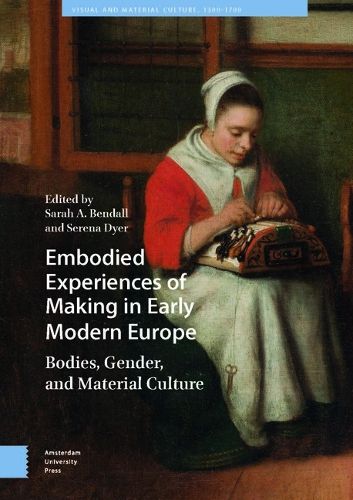Readings Newsletter
Become a Readings Member to make your shopping experience even easier.
Sign in or sign up for free!
You’re not far away from qualifying for FREE standard shipping within Australia
You’ve qualified for FREE standard shipping within Australia
The cart is loading…






Processes of making in early modern Europe were both tacit and embodied. Whether making pottery, food, or textiles, the processes of manual production rested on an intersensory connection between mind, body, and object. This volume focuses on the body of the maker to ask how processes of making, experimenting, experiencing, and reconstructing illuminate early modern assumptions and understandings around manual labour and material life. Answers can be gleaned through both recapturing past skills and knowledge of making and by reconstructing past bodies and bodily experiences using recreative and experimental approaches. In drawing attention to the body, this collection underlines the importance of embodied knowledge and sensory experiences associated with the making practices of historically marginalised groups, such as craftspeople, women, domestic servants, and those who were colonised, to confront biases in the written archive. The history of making is found not only in technological and economic innovations which drove 'progress' but also in the hands, minds, and creations of makers themselves.
$9.00 standard shipping within Australia
FREE standard shipping within Australia for orders over $100.00
Express & International shipping calculated at checkout
Processes of making in early modern Europe were both tacit and embodied. Whether making pottery, food, or textiles, the processes of manual production rested on an intersensory connection between mind, body, and object. This volume focuses on the body of the maker to ask how processes of making, experimenting, experiencing, and reconstructing illuminate early modern assumptions and understandings around manual labour and material life. Answers can be gleaned through both recapturing past skills and knowledge of making and by reconstructing past bodies and bodily experiences using recreative and experimental approaches. In drawing attention to the body, this collection underlines the importance of embodied knowledge and sensory experiences associated with the making practices of historically marginalised groups, such as craftspeople, women, domestic servants, and those who were colonised, to confront biases in the written archive. The history of making is found not only in technological and economic innovations which drove 'progress' but also in the hands, minds, and creations of makers themselves.